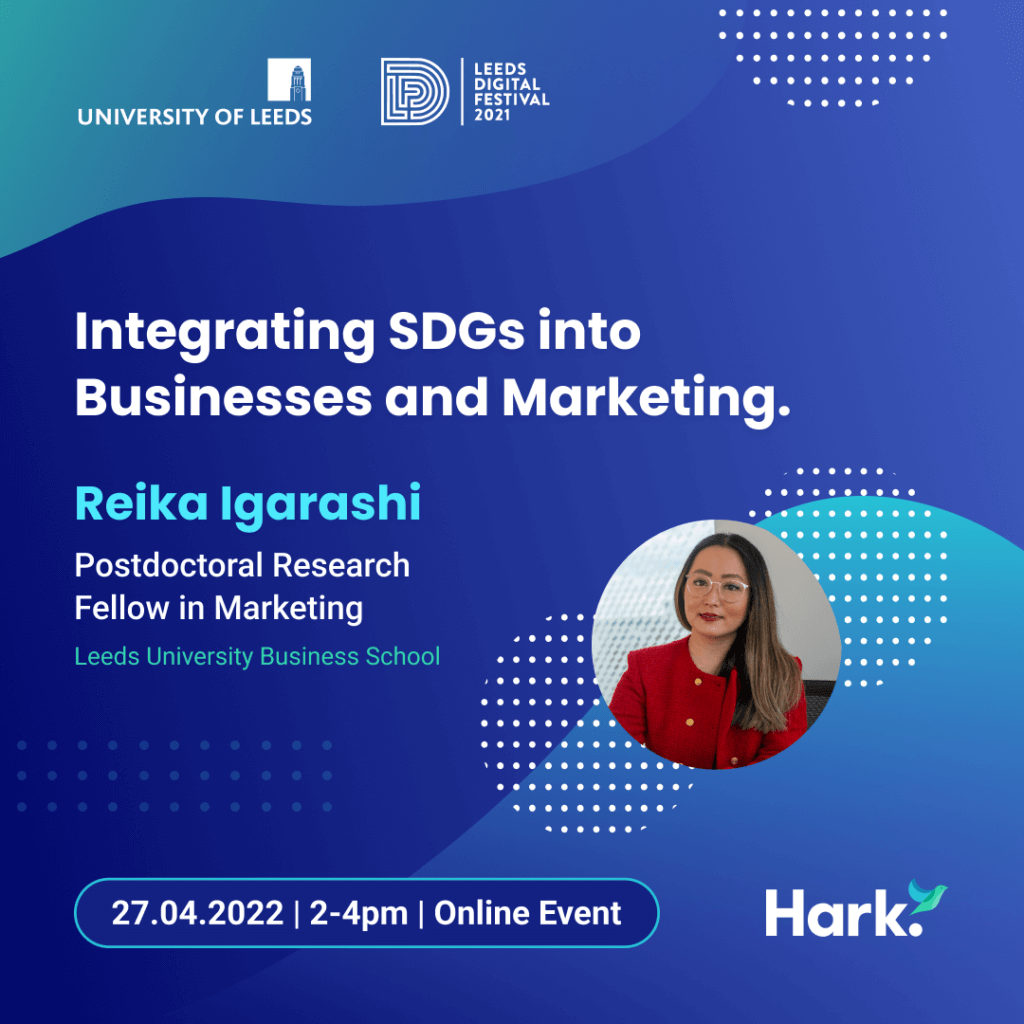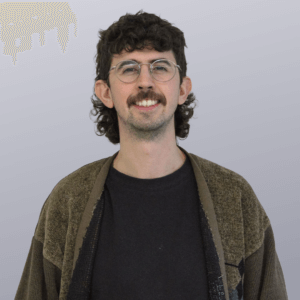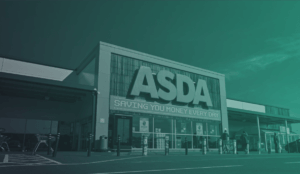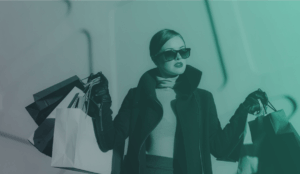Tell me a little bit about yourself and why you decided to go into the sustainability field?
I am originally from Japan (Tokyo), but I did the majority of my higher education in the UK (a part of BA, MA and PhD). Before joining the PhD programme at LUBS, I was working at a bilingual Marketing and Design Agency in Tokyo working with international luxury brands operating in the Tokyo area. But the work-life balance in Japan is still not there compared to the UK, and I felt tired and burnt out as my mobile phone was ringing until 12am and had no personal life having had to work over the weekends.
This experience inspired me to go into academia and tackle “employee burnout” by doing research and inspiring Japanese business managers to be more aware of looking after their employees. I have helped in designing managerial training on salespeople’s burnout and engagement for a pharmaceutical company in Japan as a part of my PhD.

How can academia inform sustainable practices in the public and private sectors?
I am a strong believer of collaboration. Just like my project with the pharmaceutical company, research can inform businesses’ ideas to solve burnout crises at workplaces. So, regardless of the sectors, if businesses experience any issues surrounding sustainability, please talk to us.
Academics really value the real-time phenomenon and the opportunities to work with organisations. For example, I have met a C-level officer of a VR tech company at a conference 2 months ago… and we just started talking, and now we are collaborating on a research project around VR mirrors and consumer well-being because they wanted to understand the effects that VR mirror can have on consumers’ stress and how they can intervene that. So, from understanding sustainable consumption to business strategies like logistics and supply chain, rather than us just doing our own research, let us get involved. This way we can achieve SDG 17, partnership for goals! Collaborations make our research current and that will make our research implication more meaningful to the businesses and achieving SDGs.
How are you inspiring students with sustainability?
I am very lucky to be in this position. In general, more and more students are interested in sustainability nowadays, and so are businesses, and importantly more and more companies are looking for graduates who are aware of sustainability and who have some knowledge on issues around sustainability.
Research shows that people do not like to be told to be “sustainable” by an already sustainable person. So, for example, if a vegan person tells a meat eater to become a vegan, it is, unfortunately, less convincing. So, I am not preaching to them to be sustainable. Rather, I try to make them aware of issues around corporate social responsibility and sustainability in business practices. I challenge them, and ask them why is this a good or bad practice? The students are amazing, they can come up with their own unique solutions (then I challenge them again). So, it is about having a good conversation and good discussions. I also learn so much from them in the discussions that we have as well.
What does the future of sustainability look like for you?
In terms of the climate change/crisis, I see that the major players are walking in similar directions, which I believe is a very good step forward, but sustainability isn’t just about climate change. It is one of the critical issues that need urgent attention and action. But the world is seeing increasing poverty after the pandemic, and racial abuse and gender pay gaps are also very critical issues that need more attention and action.
What does a truly inclusive society look like? The future of sustainability is really depending on us, people. We need to be united and tackle issues together. If we all take a small step towards achieving SDGs, it will happen. But I think, before looking at the future, we need to look and solve what is happening right now.
How are you seeing companies tackling sustainability challenges?
I believe that most companies are trying to integrate SDGs into their corporate values. I see many companies produce reports on sustainability and CSR. But I also think that many of them are quite reactive rather than being proactive (e.g offsetting CO2 emissions vs reducing CO2 emissions).
I believe that truly sustainable companies are ones that are proactively trying to solve issues around sustainability. For example, one of my old Uni friends started a business so that they can contribute to reducing food waste, which is directly addressing to sustainable consumption and production (SDGs 12). I feel that more businesses should have sustainability-related missions, goals, and values so that their business is driven by these rather than just profit.
We can’t wait to hear more about sustainability within academia and Reika Igarashi’s thoughts on the climate crisis. Sign up here to join us for The Collaborative Sustainability Agenda event on the 27th April.


